Yury Tokpanov
The Zamba2 Suite: Technical Report
Nov 22, 2024Abstract:In this technical report, we present the Zamba2 series -- a suite of 1.2B, 2.7B, and 7.4B parameter hybrid Mamba2-transformer models that achieve state of the art performance against the leading open-weights models of their class, while achieving substantial gains in inference latency, throughput, and memory efficiency. The Zamba2 series builds upon our initial work with Zamba1-7B, optimizing its architecture, training and annealing datasets, and training for up to three trillion tokens. We provide open-source weights for all models of the Zamba2 series as well as instruction-tuned variants that are strongly competitive against comparable instruct-tuned models of their class. We additionally open-source the pretraining dataset, which we call Zyda-2, used to train the Zamba2 series of models. The models and datasets used in this work are openly available at https://huggingface.co/Zyphra
Zyda-2: a 5 Trillion Token High-Quality Dataset
Nov 09, 2024
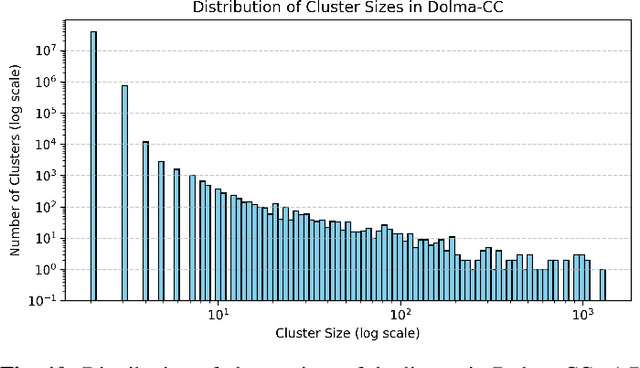
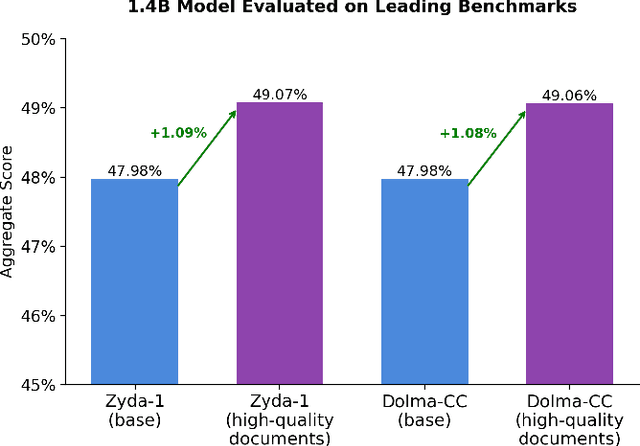
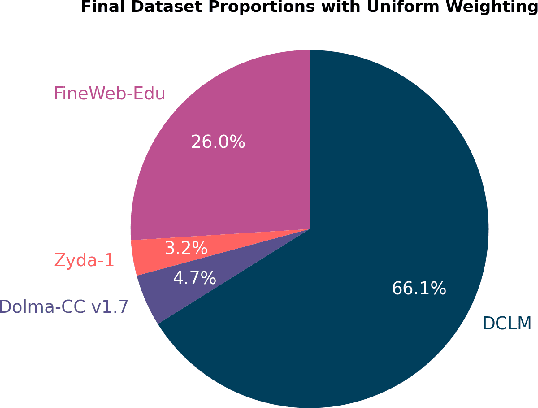
Abstract:In this technical report, we present Zyda-2: a five trillion token dataset for language model pretraining. Zyda-2 was used to train our Zamba2 series of models which are state-of-the-art for their weight class. We build Zyda-2 by collating high-quality open-source tokens such as FineWeb and DCLM, then distilling them to the highest-quality subset via cross-deduplication and model-based quality filtering. Zyda-2 is released under a permissive open license, and is available at https://huggingface.co/datasets/Zyphra/Zyda-2
Zyda: A 1.3T Dataset for Open Language Modeling
Jun 04, 2024Abstract:The size of large language models (LLMs) has scaled dramatically in recent years and their computational and data requirements have surged correspondingly. State-of-the-art language models, even at relatively smaller sizes, typically require training on at least a trillion tokens. This rapid advancement has eclipsed the growth of open-source datasets available for large-scale LLM pretraining. In this paper, we introduce Zyda (Zyphra Dataset), a dataset under a permissive license comprising 1.3 trillion tokens, assembled by integrating several major respected open-source datasets into a single, high-quality corpus. We apply rigorous filtering and deduplication processes, both within and across datasets, to maintain and enhance the quality derived from the original datasets. Our evaluations show that Zyda not only competes favorably with other open datasets like Dolma, FineWeb, and RefinedWeb, but also substantially improves the performance of comparable models from the Pythia suite. Our rigorous data processing methods significantly enhance Zyda's effectiveness, outperforming even the best of its constituent datasets when used independently.
Zamba: A Compact 7B SSM Hybrid Model
May 26, 2024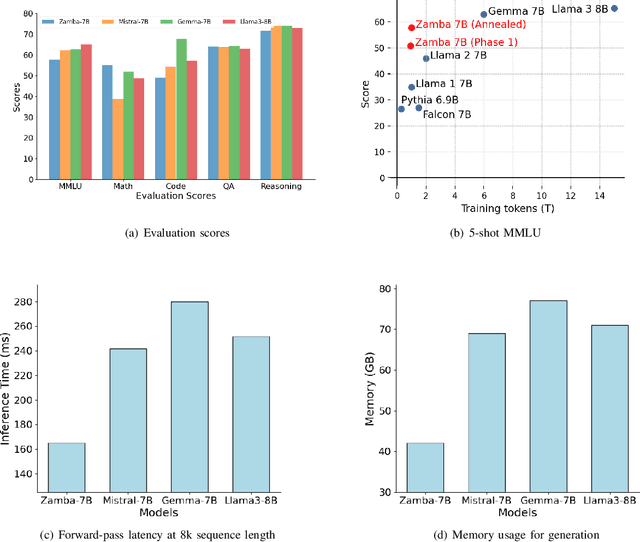
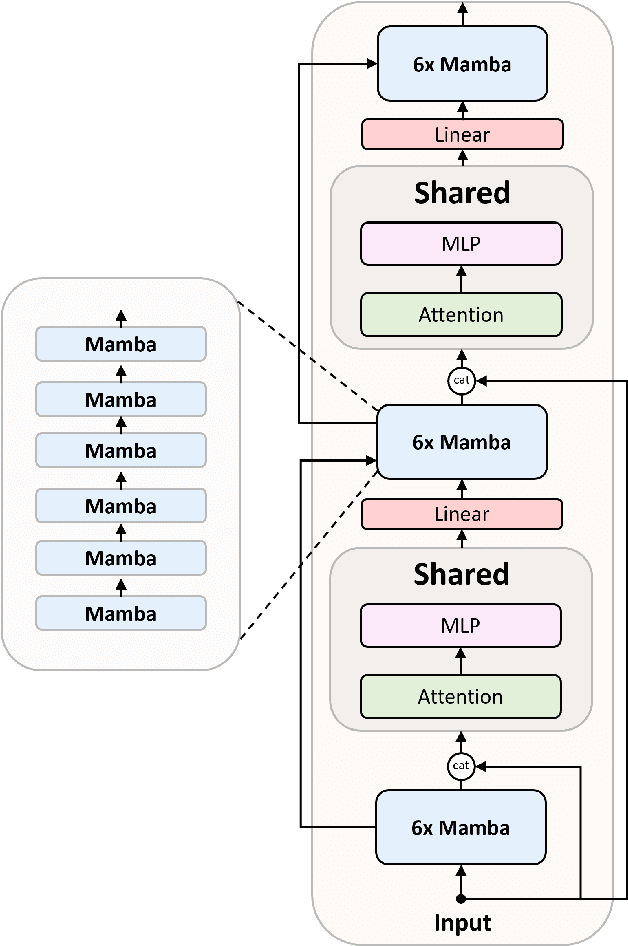


Abstract:In this technical report, we present Zamba, a novel 7B SSM-transformer hybrid model which achieves competitive performance against leading open-weight models at a comparable scale. Zamba is trained on 1T tokens from openly available datasets and is the best non-transformer model at this scale. Zamba pioneers a unique architecture combining a Mamba backbone with a single shared attention module, thus obtaining the benefits of attention at minimal parameter cost. Due to its architecture, Zamba is significantly faster at inference than comparable transformer models and requires substantially less memory for generation of long sequences. Zamba is pretrained in two phases: the first phase is based on existing web datasets, while the second one consists of annealing the model over high-quality instruct and synthetic datasets, and is characterized by a rapid learning rate decay. We open-source the weights and all checkpoints for Zamba, through both phase 1 and annealing phases.
BlackMamba: Mixture of Experts for State-Space Models
Feb 01, 2024Abstract:State-space models (SSMs) have recently demonstrated competitive performance to transformers at large-scale language modeling benchmarks while achieving linear time and memory complexity as a function of sequence length. Mamba, a recently released SSM model, shows impressive performance in both language modeling and long sequence processing tasks. Simultaneously, mixture-of-expert (MoE) models have shown remarkable performance while significantly reducing the compute and latency costs of inference at the expense of a larger memory footprint. In this paper, we present BlackMamba, a novel architecture that combines the Mamba SSM with MoE to obtain the benefits of both. We demonstrate that BlackMamba performs competitively against both Mamba and transformer baselines, and outperforms in inference and training FLOPs. We fully train and open-source 340M/1.5B and 630M/2.8B BlackMamba models on 300B tokens of a custom dataset. We show that BlackMamba inherits and combines both of the benefits of SSM and MoE architectures, combining linear-complexity generation from SSM with cheap and fast inference from MoE. We release all weights, checkpoints, and inference code open-source. Inference code at: https://github.com/Zyphra/BlackMamba
 Add to Chrome
Add to Chrome Add to Firefox
Add to Firefox Add to Edge
Add to Edge